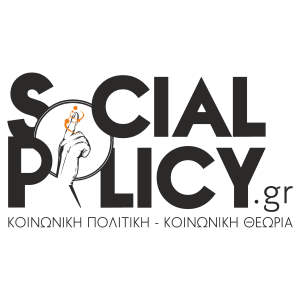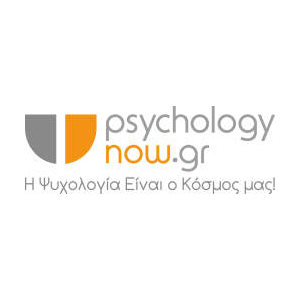Βραβείο 2021

Βραβείο 2022

Στρατηγικός συνεργάτης

Υποστηρικτές Επικοινωνίας


Open access article: https://journals.sagepub.com/doi/full/10.1177/21582440251336174
Abstract
This review aims to systematically review qualitative research exploring the social support experiences of parents of children with autism spectrum disorder (CWASD). Limited to original research in English language only; reported on the social support experiences of parents of CWASD; publication dates 2013 to 2023. PsycInfo, PubMed, Web of Science, and Scopus were systematically searched for qualitative research. The search was conducted on 3/1/2024 (Finally updated on 11/5/2024). The modified Critical Appraisal Skills Program tool was used to assess the overall quality of the included studies, and the GRADE-CERQual tool was used to assess the confidence of the findings. The data were analyzed using thematic synthesis. This review is registered on PROSPERO (ID: CRD42023409344). 18 studies were included. The overall quality of most studies was high. Parents of CWASD lack emotional support from family, professionals, friends, and the community. The social exclusion and stigma surrounding disabilities add pressure, although religious beliefs provide some positive support. They face challenges owing to limited healthcare, financial burdens, and inadequate policies. Additionally, they lack access to helpful information. While peer support can be useful, it often suffers from issues such as negative feedback and inconsistency. This review reveals substantial deficits in social support for parents of CWASD, which leads to stress and social isolation. Comprehensive measures to strengthen family services, policy frameworks, healthcare, and educational support while simultaneously reducing stigma and enhancing information transparency should be implemented.
Citation: Gao, X., & Drani, S. (2025). Social Support Experiences in Parents of Children With ASD:A Qualitative Systematic Review. Sage Open, 15(2). https://doi.org/10.1177/21582440251336174 (Original work published 2025)
Open access article: https://journals.plos.org/mentalhealth/article?id=10.1371/journal.pmen.0000377
Abstract
Autistic children and young people are at increased risk of experiencing mental health difficulties, but often face delays or barriers to accessing support. While evidence exists regarding parents’ experiences of supporting an autistic child, there is a lack of focus on parenting autistic children who are also experiencing mental health difficulties. This is despite the high likelihood of co-occurrence, the increased complexity this can bring, and the potential impact on the parents and their children. Thus, the present study aimed to explore parents’ experiences of supporting their autistic child with mental health difficulties in the United Kingdom (UK). Mixed-methods surveys were completed by 300 parents/carers of autistic children who had previously sought help for their child’s mental health difficulties. Qualitative data were extracted from open-text questions pertaining to parents’ perceived impact of their children’s mental health difficulties on all aspects of their life. Data were analysed using reflexive thematic analysis. Three themes, along with associated subthemes, were identified, namely 1) Deteriorating parental wellbeing, 2) The knock-on effect on the whole family, and 3) A lack of support. Findings underscore the significant challenges faced by parents, as they were often left to manage their child’s deteriorating mental health without sufficient professional support. The emotional and physical toll on parents was thought to be exacerbated by long waiting times, inadequate support services, and a lack of understanding of autism within healthcare and educational systems. There is an urgent need for more neuroaffirmative, personalised approaches to supporting autistic children and their families, along with timely access to effective interventions. By ensuring earlier intervention and reducing systemic barriers, both the mental health of children and the wellbeing of their families can be significantly improved, ultimately fostering better outcomes for all involved.
Citation: Ashworth E, Bray L, Hanlon C, Pavlopoulou G, Moore D, Donaghy B, et al. (2025) “Constantly overwhelmed and desperate for help”: Parents’ experiences of supporting their autistic child with mental health difficulties in the United Kingdom. PLOS Ment Health 2(9): e0000377. https://doi.org/10.1371/journal.pmen.0000377
Open access article: https://www.mdpi.com/2813-4346/3/3/40
Abstract
Young individuals with autism spectrum disorder (ASD) seem to attend higher education more frequently. Yet, the academic performance of students with ASD and the graduation rate appear to be poorer than those of typical development students. Moreover, college students with ASD face several challenges in their everyday and social lives. Students with ASD seem not to receive the appropriate social and educational support in higher education. This article reports the results of a systematic literature review of research programs and services designed to meet the needs of students with ASD enrolled in higher education. Several interventions are available and appear to be effective in supporting students with ASD in higher education (e.g., social planning intervention, focus groups, coaching paired with behavioral skills training, video feedback, visual framework,peer mentoring, and virtual reality). In addition, this article shows that colleges and universities face the challenge of preparing for these students and the need to provide psychological support for them. Moreover, studies of experiences and opinions of college students with ASD from their perspectives are included.
Citation: Citation: Syriopoulou-Delli, C.; Sarri, K.; Papaefstathiou, E.; Filiou, A.-E.; Gkiolnta, E. Educational Programs Supporting Higher Education Individuals with Autism Spectrum Disorder: A Systematic Literature Review. Trends High. Educ. 2024, 3, 710–724. https://doi.org/10.3390/higheredu3030040
Open access article: https://journals.sagepub.com/doi/full/10.1177/13623613231220210
Abstract
To provide inclusive education to autistic students, it is important that teachers possess knowledge about autism, feel competent in teaching autistic students, and have a positive attitude toward the inclusion of autistic students. In this study, we explored knowledge, self-efficacy, and attitude concerning autism among N = 887 teachers in Germany. The results showed that knowledge about autism was only moderate and teachers held some typical misconceptions about autism. Moreover, teachers did not possess overwhelmingly high self-efficacy beliefs whereas their attitude toward inclusion of autistic students was rather positive. Experience with teaching autistic students was associated with more knowledge and higher self-efficacy. Also, female teachers were more knowledgeable about autism and felt more competent in teaching autistic students than male teachers. However, the type of school where teachers were working made hardly any difference in their knowledge, self-efficacy, and attitude. Overall, the results suggest that teachers in Germany need more autism training to increase their knowledge about autism and their self-efficacy beliefs in teaching autistic students.
Citation: Wittwer, J., Hans, S., & Voss, T. (2023). Inclusion of autistic students in schools: Knowledge, self-efficacy, and attitude of teachers in Germany. Autism, 28(8), 2040-2052. https://doi.org/10.1177/13623613231220210 (Original work published 2024)
Open access article: https://link.springer.com/article/10.1186/s40359-024-01664-2
Abstract
Background
Artificial intelligence-powered interventions have emerged as promising tools to support autistic individuals. However, more research must examine how teachers and educators perceive and experience these AI systems when implemented.
Objectives
The first objective was to investigate informants’ perceptions and experiences of AI-empowered interventions for children with autism. Mainly, it explores the informants’ perceived benefits and challenges of using AI-empowered interventions and their recommendations for avoiding the perceived challenges.
Methodology
A qualitative phenomenological approach was used. Twenty educators and parents with experience implementing AI interventions for autism were recruited through purposive sampling. Semi-structured and focus group interviews conducted, transcribed verbatim, and analyzed using thematic analysis.
Findings
The analysis identified four major themes: perceived benefits of AI interventions, implementation challenges, needed support, and recommendations for improvement. Benefits included increased engagement and personalized learning. Challenges included technology issues, training needs, and data privacy concerns.
Conclusions
AI-powered interventions show potential to improve autism support, but significant challenges must be addressed to ensure effective implementation from an educator’s perspective. The benefits of personalized learning and student engagement demonstrate the potential value of these technologies. However, with adequate training, technical support, and measures to ensure data privacy, many educators will likely find integrating AI systems into their daily practices easier.
Implications
To realize the full benefits of AI for autism, developers must work closely with educators to understand their needs, optimize implementation, and build trust through transparent privacy policies and procedures. With proper support, AI interventions can transform how autistic individuals are educated by tailoring instruction to each student’s unique profile and needs.
Citation: Li, G., Zarei, M.A., Alibakhshi, G. et al. Teachers and educators’ experiences and perceptions of artificial-powered interventions for autism groups. BMC Psychol 12, 199 (2024). https://doi.org/10.1186/s40359-024-01664-2